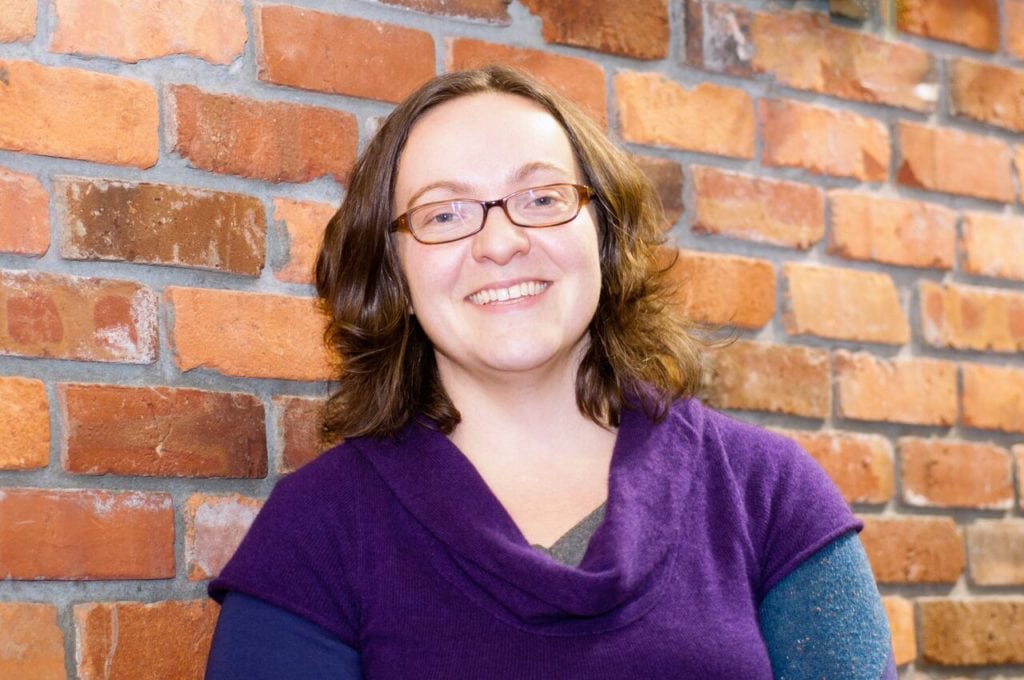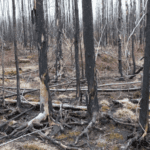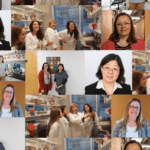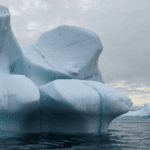Tara Macdonald grew up surrounded by science: her mom was a biologist who had run her own consulting company since 1994, and her dad was a geologist. “I inherited an intense curiosity about the natural world from my parents,” she says. “My dad especially is always analyzing, working things out, and asking questions, which as a teenager I found irritating. But now I realize I do the same thing!”

So it wasn’t surprising when Macdonald decided to study science at university. She stayed close to home, attending the University of Victoria (UVic) initially for biochemistry. “Ultimately I wanted to go into medicine,” she says. “I was a good student and this seemed an obvious path at the time. But, like many students, I didn’t really know what my options were.”
Macdonald quickly learned that she enjoyed biology, particularly ecology and biodiversity. They were a natural fit, as she’d grown up learning about invertebrate taxonomy from her mom. “I’m not sure if my interest in invertebrates was ‘nature’ or ‘nurture’,” she laughs.
After completing a BSc (Hon) (2000) in biology from UVic, Macdonald moved on to the University of Alberta to do a PhD (completed in 2006). “I was really interested in taxonomy and understanding the process of evolution and diversity of organisms,” she says. “They had a Systematics and Evolution program that worked on these topics. I’ve never lost my excitement over the fact that we can figure out how organisms are related to each other and infer their evolutionary path.”
Like our previous interviewee, Dr. Caroline Fox, Macdonald benefitted immensely from spending a couple of years after her PhD at the Bamfield Marine Sciences Centre on the west coast of Vancouver Island, where she taught Invertebrate Zoology and coordinated university courses. It served as the perfect break from research, allowing her to consider whether her career path would take her to academia or industry. In the end she decided to take on postdoctoral work instead.
“I knew that my knowledge of soft-bottom marine invertebrate fauna of the British Columbia coast was unique,” she says. “Through my research network, I obtained an NSERC Visiting Fellowship at the Institute of Ocean Sciences on Vancouver Island, where I worked on a collaborative research program with Metro Vancouver and Fisheries and Oceans Canada. I was able to apply my functional knowledge from my PhD to monitor invertebrates in the Strait of Georgia.”
After her postdoc, Macdonald was keen to stay close to home in Victoria. “It can be difficult to find a research position in biology, and there’s a lot of competition, particularly in such a popular city,” she says. “I didn’t want to leave the BC coast, even if it meant restricting my career opportunities.”
Ultimately, Macdonald took over her mother’s business, Biologica Environmental Services. “It hadn’t really occurred to me to take on her business,” she says. “My mom was already making plans to sell it so she could retire. But as my postdoc ended, I started thinking about where I could take the business, and I realized it could be really great. I liked the idea of being my own boss and not to have to compete for funding. I saw the potential of partially self-funding a research program and moving taxonomy forward.”
What exactly does Biologica do? “We’re a biomonitoring company, so our main activity is to identify and quantify taxa in water and sediment samples to assess habitat quality,” explains Macdonald. “Our specialized ecological and functional knowledge of the flora and fauna provides significant value for our clients. Indeed, more and more of them are seeking our help with field collection and data reporting.”
While Macdonald had some unique skills to keep the business going (taxonomy, molecular systematics, ecology, teaching, and administration), there was still a lot to learn. “I had to make some difficult decisions as we worked towards profitability, and I needed to develop skills that I hadn’t learned as an academic: human resources, financial management (margins, projections, etc.), and business processes,” Macdonald recalls.
Once she got settled in, however, Macdonald immediately began expanding the reach of the business. “I’m deeply committed to having research and development drive the business forward,” says Macdonald. “I’ve strengthened and expanded our core services, and am moving towards using molecular technology in biomonitoring. My vision for Biologica is based on a solid foundation of research and scientific progress.”
Macdonald notes that her experience obtaining academic funding gave her the knowledge and contacts to access financial support for Biologica from institutions like the Natural Sciences and Engineering Research Council (NSERC: Engage Grants) and the National Research Council (NRC: Industrial Research Assistance Programs). “As with any funding opportunity, these programs can be competitive,” says Macdonald. “But we’ve been fortunate to have some smaller-scale projects funded as we’ve developed our services.”




